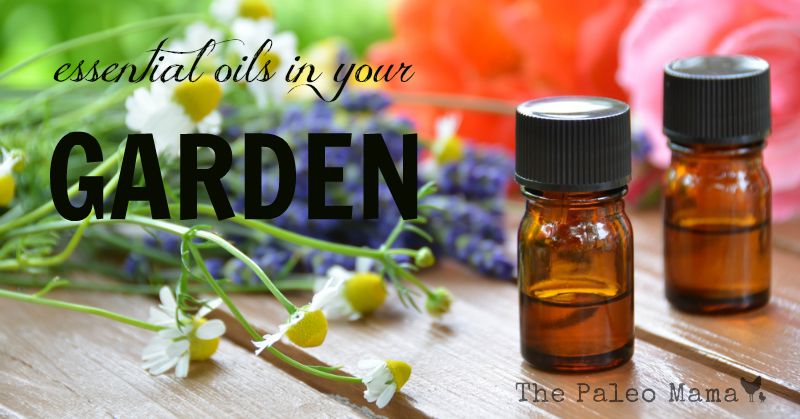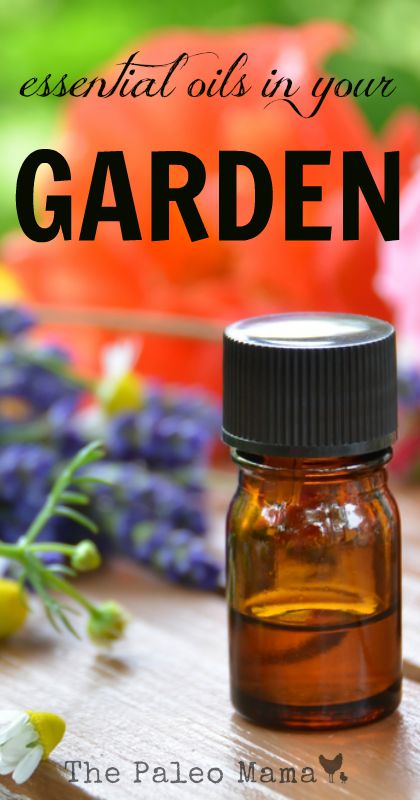
It’s so exciting to me to know that I can combine two of my passions—gardening and essential oils—to assure that I am going to reap a harvest of vibrant, healthy, pest-free fruits and vegetables. There are many wonderful essential oils for your garden and this post is going to show you a few of them!
You can purchase essential oils directly from me by going here.
Essential oils can be a very important part of natural gardening. We live in a world where we are bombarded by chemicals that many time are not safe to use. Using essential oils in your garden can deter pests from ruining your precious plants. You will end up with strong and healthy plants that resist disease, and produce a higher yield and more fragrant crops. Can you just imagine how fragrant a walk at dusk will be in your garden?
I thought it would be very interesting to do some research and give you a post that covers three areas for merging essential oils and gardening together.
We will look at:
- Plants and Essential Oils that go together very well
- Using Essential Oils to drive away mold and fungus and those pesky insects and bugs
- Essential Oils that are very beneficial to you—the gardener.
1. Plants and Essential Oils that go together very well
Just as there are plants that work very well together and are garden companions, so too there are specific plants and specific essential oils that can become great companions in your garden. These essential oils are often the extracted oils from the companions plants that like to grow next to each other.
You will need to so your own research to really learn all there is to know about companion plants and essential oils, but let me list some of the garden fruits and vegetables that have a particular companion essential oil that you can use.
You can purchase essential oils directly from me by going here.
| Vegetables | Essential Oil |
| Asparagus | Basil |
| Green Beans | Lavender, Basil |
| Broccoli | Basil, Thyme |
| Cabbage | Peppermint, Thyme, Clary Sage |
| Carrots | Sage |
| Cauliflower | Sage |
| Cucumbers | Sage |
| Leeks | Celery, Hyssop |
| Lettuce | Carrot |
| Onion | Chamomile |
| Peas | Geranium |
| Potatoes | Basil, Sage |
| Radishes | Parsley |
| Tomatoes | Basil |
| Fruits | Essential Oil |
| Apples | Lavender |
| Grapes | Lavender, Hyssop |
The best way to add the essential oil for the benefit of the vegetable or fruit plant is to add the oil to water. You can mix 6 drops of the companion essential oil to 2 gallons of warm water, then let it cool. Fill your watering container half full with the essential oil water, then top it off with cold water, stir again and water as usual.
Essential oils aren’t just for repelling unwanted creatures from your garden. You can also use certain fragrant essential oils to attract pollinators to your garden. The scent of orange blossom is an irresistible attractant for bees, as are the essential oils of small-blossomed flowers like lavender, hyssop, marjoram, helichrysum, basil, sage, and rosemary. You can also use lavender, fennel, helichrysum and sage essential oils to attract more butterflies to your garden.
How much fun would it be to create a private little nook near your garden where you go to relax after a long a stressful day. You will be able to take in the fragrance from your plants and oils, but you could also add an essential oil diffuser (I like this diffuser but you can get it much cheaper directly from me here) and fill it with aromatherapy oils to enhance the calming effects of your secret garden.
2. Using Essential Oils to drive away environmental threats and those pesky insects and bugs
Essential oils are invaluable when it comes to dealing garden threats. About 85 percent of all plant diseases are rooted in fungi. Fungi poison and kill cells, block stomata (breathing pores), and steal nutrients from the plants. That’s where powerful essential oils can help you with these fungi. Tea tree oil (melaleuca) is a natural oil with the power to not only limit fungal growth, but to kill existing fungi. Try mixing a few drops of oil (up to a tablespoon) per cup of water in a spray bottle. Spray directly on your plants a couple of times a week. Avoid spraying leaves in very hot weather because the sun-heated oil can easily burn the leaves.
There are a wide variety of essential oils that can be used to repel unwanted insect pests from your garden. You can see some suggestions in the list below, but be sure you do your own research to find specific protocols for your own garden.
You can purchase essential oils directly from me by going here.
| Insects | Essential Oil |
| Ants | Peppermint, Spearmint, Garlic, Orange |
| Aphids | Peppermint, Spearmint, Cedarwood, Hyssop, Orange |
| Beetles | Peppermint, Thyme, Garlic |
| Cabbage caterpillars | Rosemary |
| Chiggers | Lavender, Lemongrass, Sage, Thyme |
| Cutworms | Thyme, Sage |
| Fleas | Lavender, Lemongrass, Peppermint, Orange, Rosemary |
| Flies | Basil, Clove, Eucalyptus, Lavender, Peppermint, Rosemary |
| Gnats | Patchouli, Spearmint |
| Mosquitoes | Lavender, Lemongrass, Rosemary |
| Moths | Peppermint, Lavender, Hyssop, Cedarwood |
| Plant Lice | Peppermint, Spearmint, Cedarwood, Orange |
| Roaches | Cedarwood, Eucalyptus, Cinnamon, Thyme |
| Slugs | Cedarwood, Pine, Hyssop, Patchouli |
| Snails | Cedarwood, Garlic, Pine, Patchouli |
| Spiders | Peppermint, Lemon, Lime, Orange, Lavender |
| Ticks | Lavender, Lemongrass, Thyme, Sage, Tea Tree |
| Weevils | Patchouli, Cedarwood, Sandalwood |
| Wooly Aphids | Patchouli, Pine |
There are a number of ways you can apply the essential oils to your plants. Some ideas are:
- Sprays–4-8 drops essential per gallon of water
- Hanging strips of cloth—1 drop of undiluted essential oil per strip. Hand from a branch, using multiple cloths to cover desired area.
- Cotton Wool—Bury small cartons, such as yogurt containers, in the ground keeping the top level with the soil. Add 4 drops essential oil to cotton balls and insert in the containers.
- String—Soak a string is a solution of water and essentials oils then string between plant rows to deter flying insects.
You can create your own all-natural insect repellent by mixing equal parts of rosemary, peppermint, thyme, and clove oils (about 10 drops of each) in a spray bottle filled with water. Shake well before using, and apply anywhere you want to get rid of pesky garden insects and bugs.
In addition to the suggestions above, you can find several specific homemade formulas to use here.
3. Essential Oils that are very beneficial to you—the gardener
Gardening can be beneficial to you in many ways. Being outdoors, close to nature, and active in growing your own food feeds you on all levels. However there will be days when gardening comes with sore muscles, dry skin, sunburns, bug bites, and respiratory congestion. Fortunately your essential oils are as beneficial and healthy for the gardener as they are for the garden.
You can do your own research to find effective ways to treat each of the ailments that sometimes come with gardening. Here are some simple ideas:
- Sore muscles—All-purpose Salve (here).
- Occasional skin irritations—Lavender oil is a must have and can be used to soothe dry occasional skin irritations. You can also use Peppermint oil for its “cooling” properties. You can make either a compress by adding 3-5 drops of Lavender oil to cool water and soaking a washcloth in the mixture and applying it to the sunburned area for 3 minutes. You can also mix 25 drops Lavender oil in a 1 ounce Spritzer bottle, fill with purified water or aloe vera juice, shake and spritz over the areas of need.
- Respiratory Support and Clear Breathing—Add a drop or two of a respiratory blend of oil to a cotton ball and inhale as needed. Peppermint works well too!
- Seasonal distress from pollen—Mix 3 drops each of Lavender and Lemon and 3-5 drops Peppermint in a carrier oil and rub it into your palms, then inhale deeply for several seconds.
Using essential oils in your garden does so much to increase the positive rewards of gardening. Your plants will be healthier, your garden are will be wondrously fragrant and be home to busy bees and singing birds, and you will reap the reward of knowing you have contributed greatly to the continuing health and wellness of your family.
You can purchase essential oils directly from me by going here.

Sources
- https://essentialthree.com/blog/?p=595
- https://www.theseedsupply.com/using-essential-oils-in-the-garden/
- https://www.naturallivingideas.com/9-clever-ways-use-essential-oils-garden/
- https://simply-living-simply.com/gardening-essential-oils/
Thanks for these great tips for using essential oils in gardening. What are the best books for reading more about how to apply essential oils with an organic garden?
I am having several problems in my flower beds. I have snails eating my plant leaves, spiders building webs, and now some fungi have appeared on some of my bushes and plants. What combination of essential oils should I use. I see the one for spiders. Do you use all of the oils together and do you spray the plants directly or the soil around the plants? Thank you so much.
Sherri, I know this is late, but I just read this page now… however, in case you encounter the problem again, try White Fir essential oil to deter slugs…
I am trying to make sure that cats don’t use my vegetable garden for a liter box. Can I use essential oils to keep them out? I don’t want to use anything that will mess up my vegetables in the process. I usually do: Kale, Pole Beans, Tomatoes, Peppers, Cucumbers, Squash and I hope to add: carrots, acorn squash, sweet potatoes, onions.
What suits a sunflower?